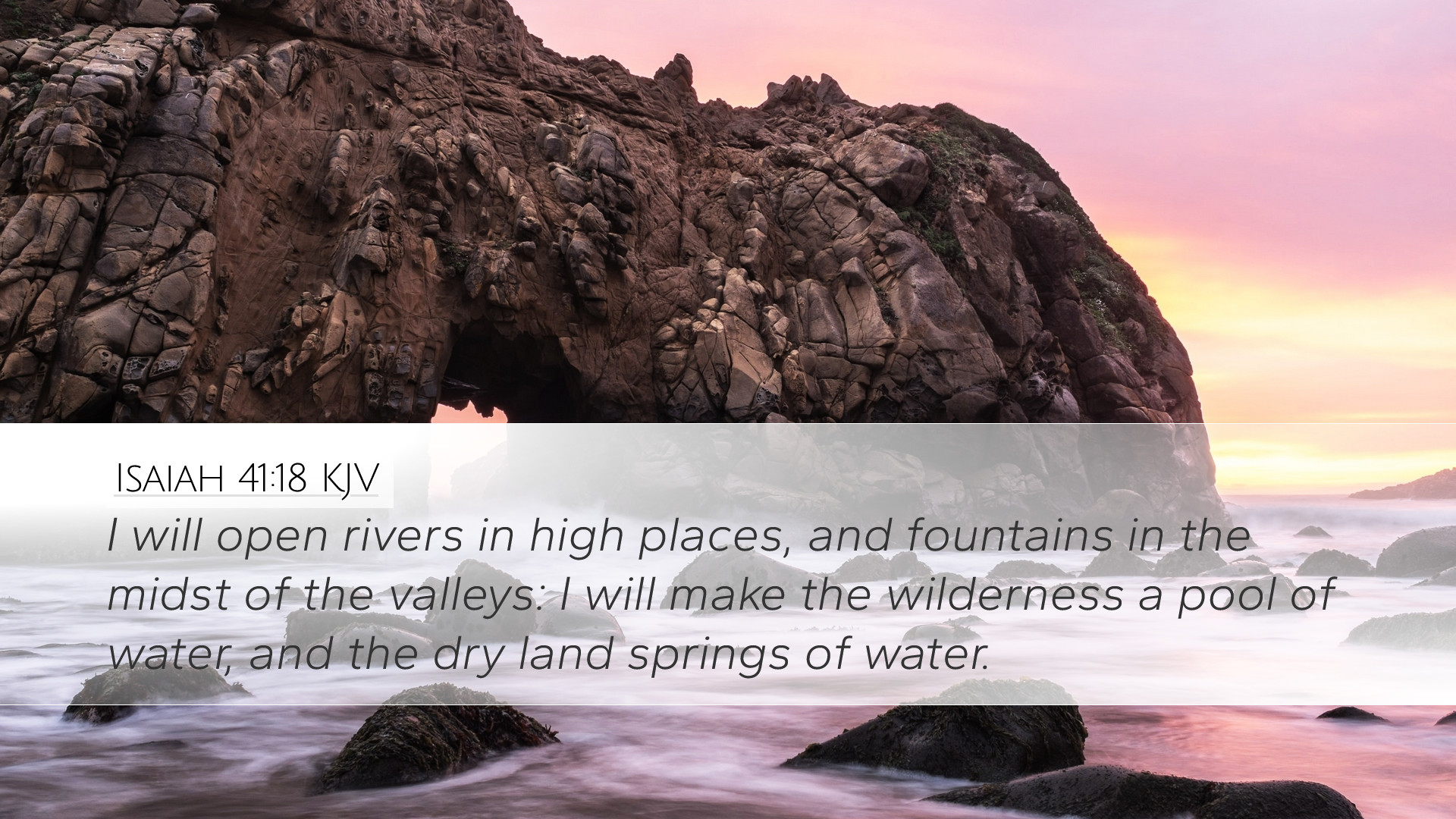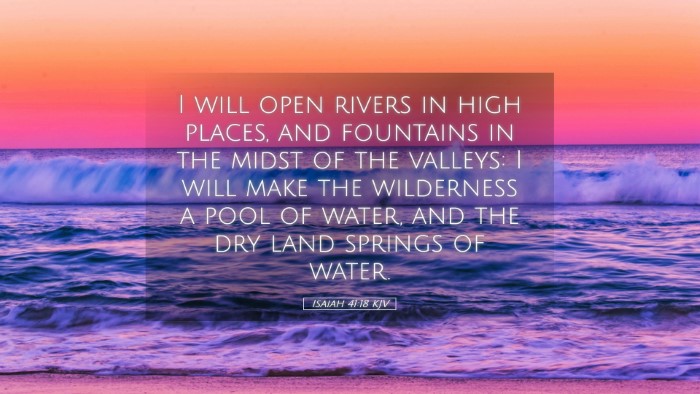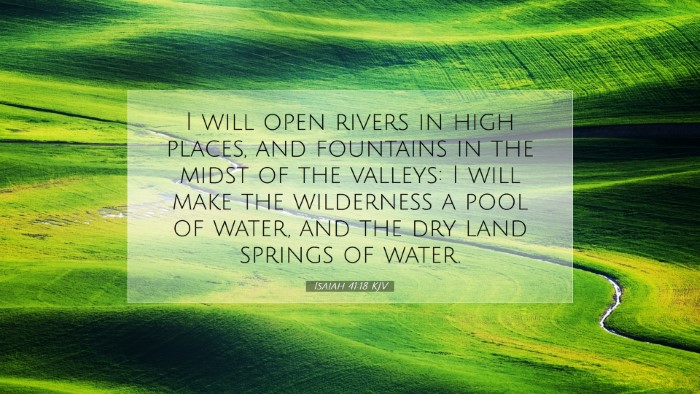Commentary on Isaiah 41:18
Isaiah 41:18 states, "I will open rivers in desolate heights, and fountains in the midst of the valleys; I will make the wilderness a pool of water, and the dry land springs of water." This verse is rich with imagery and profound theological significance, reflecting God's sovereignty over creation and His ability to provide for His people even in the most unlikely circumstances.
Contextual Background
The book of Isaiah spans the prophetic messages delivered during a tumultuous period in Israel's history. Set against the backdrop of impending judgement and hope, this verse encapsulates God’s promise of restoration and renewal. The imagery of rivers and fountains evokes a sense of abundance and divine provision, underscoring God’s care for His people.
Thematic Overview
This promise can be seen thematically within several key areas:
- Divine Provision: The verse emphasizes God’s ability to provide sustenance and life-giving resources in barren and inhospitable places.
- Hope in Desolation: The contrast between desolation and abundance highlights the transformative power of God’s presence, reminding believers that their circumstances do not dictate God’s ability to bless.
- Symbolism of Water: In biblical literature, water often symbolizes life, purity, and the Holy Spirit. Thus, God's promise serves as a metaphor for spiritual renewal.
Insights from Commentators
Various public domain commentators provide rich insights into this verse:
Matthew Henry
Matthew Henry highlights that this verse signifies God’s power to intervene in nature. He suggests that the miraculous provision of water in a desert symbolizes God's grace and the revitalizing power of His gospel. He writes that just as God can bring physical sustenance from desolation, He can also renew the spiritual lives of those who seek Him earnestly. Henry reinforces the notion that God's provision is not just for physical needs but extends to spiritual nourishment, illustrating how believers are fed through His word.
Albert Barnes
Albert Barnes focuses on the imagery of “wilderness” and “dry land,” interpreting these terms as representations of states of despair and hopelessness. He asserts that the promise made here is not solely about physical water but signifies spiritual refreshment and guidance during times of distress. Barnes emphasizes that just as God can alter the landscape to provide for His people, so too can He change hearts and minds, bringing about repentance and revitalization.
Adam Clarke
Adam Clarke’s commentary delves into the linguistic nuances of the original Hebrew text, emphasizing the comprehensive nature of God’s promise. Clarke notes that the divine declaration to "open rivers" signifies an unprecedented work of God in the lives of His followers. He draws connections between the physical phenomena described and the spiritual reality of God's blessings. Clarke underscores that this verse is an assurance that God is not limited by circumstances; rather, He acts sovereignly to fulfill His promises even in the most challenging environments.
Theological Application
For theologians and students of Scripture, Isaiah 41:18 offers profound theological reflections:
- The Sovereignty of God: This verse serves as a reminder of God's ultimate authority over nature and His ability to shape circumstances for the good of His people. It challenges believers to trust in God's omnipotent character.
- Hope for the Hopeless: The promise of water in dry places resonates deeply with those facing spiritual barrenness or life challenges. It provides comfort and reassurance that God will provide hope in times of difficulty.
- The Transformative Power of God: Just as God can change a desert into a lush landscape, He also transforms the human heart through His grace, signifying the importance of spiritual renewal in the life of every believer.
Conclusion
Isaiah 41:18 stands as a powerful testament to God’s unfailing promise of provision and renewal. The extensive insights from commentators like Matthew Henry, Albert Barnes, and Adam Clarke deepen our understanding and encourage us to grasp the full breadth of God’s capabilities. Through this verse, we are reminded that in our personal desolation, God is present, bringing forth rivers of life in abundance.


